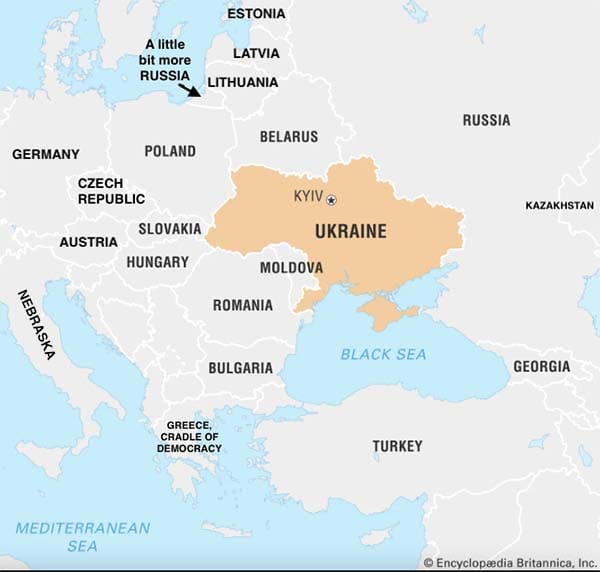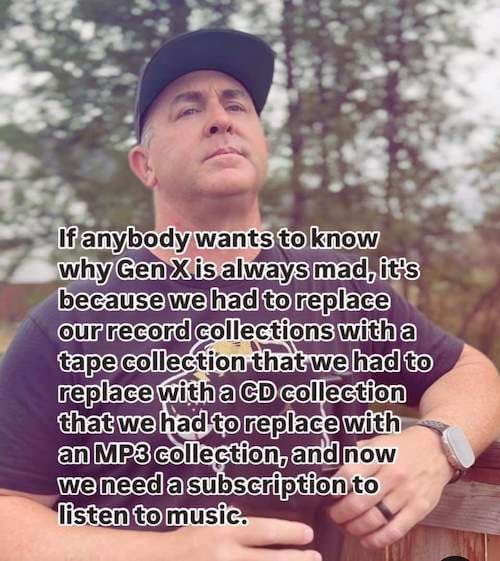Why are we giving all that aid to Ukraine anyway?
It's not good that Elon Musk has been talking with Vladimir Putin.

Correction: Yesterday, I said it looked like Elon Musk had stopped his daily $1 million giveaways to random swing-state voters, but he didn't.
The bigger Musk news, though, is that he has been in regular contact with Russian president Vladimir Putin. As the Wall Street Journal notes, this is concerning, inasmuch as Musk's company SpaceX and its subsidiary Starlink do a lot of work with and for U.S. military and intelligence agencies, and Russia is one of the U.S.'s biggest adversaries. Perhaps most significantly, Starlink technology has been supplying internet access to the Ukrainian government, military, and civilians since the country was invaded by Russia, on Putin's orders, in February 2022—although to be clear, the U.S. and other countries have picked up most of the bill. That was largely the case even back in late 2022, when Musk made a big show of announcing that Starlink couldn't afford to keep helping in Ukraine. He did that right after posting a bunch of talking points on Twitter that mirrored the Russian government's. This was also around the time he started talking regularly to Putin.
So is Musk colluding with Putin? Oh, most definitely. There's a wild but—to me at least—fairly convincing argument out there that Putin has long been motivated by a set of beliefs known as "Russian cosmism," which holds that humanity is destined to evolve into a multiplanetary species. That aligns neatly with Musk's own vision for our species, although there are also plenty of more mundane reasons that two billionaires—you know Putin is a billionaire too, yes?—would want to collab on projects, like amassing more money and power. (And if you're wondering why Starlink would keep selling internet tech to Ukraine at all if Musk does support Putin, the short answer is that he personally would take a big hit if SpaceX lost its government contracts—it basically relies on government funding—and so would a lot of other people whose good books he wants to stay in, because he's not the only shareholder.)
Why are we so worried about Ukraine anyway? you may ask. You see a lot of folks saying the U.S. shouldn't be giving so much money to Ukraine (or Israel or any other foreign country), and should be spending those funds on Americans instead. This is one of those deals where you need to take a beat and ask yourself if you are actually thinking about how things work. Are you imagining a delegation of soft-hearted, naïve Americans traveling to Ukraine carrying stuffed bags with dollar signs on them, and then passing out those bags to everyone on the street? Or something that looks less silly but is along the same lines? Why are you doing that? Probably because you haven't thought about it very hard. The world isn't like that.
Most of the funds allocated for Ukraine aid go to U.S. defense contractors—which are based in this country and employ Americans. (Just a few weeks ago, Ukrainian president Volodymyr Zelenskyy visited one in Pennsylvania.) And while I'm not personally a huge fan of U.S. defense contractors, the people who complain about Ukraine aid are generally not peace-loving wusses like me. Those people also tend to love it when things are made in America and when jobs are created in America. Ukraine funding is doing both of those things. It's like a mini wartime economy, but we don't have to be in the war. (This is why Republicans in Congress have hemmed and hawed about approving Ukraine aid but ultimately come through every time. It benefits them to put on a show for their voters, because "Democrats want to use your tax dollars to help people on the other side of the planet instead of you" is a great talking point. And it benefits them for the aid to keep flowing, because that money is coming into their communities.)
But there are reasons to help Ukraine beyond this, which also tend to be more economic than coming from the goodness of our hearts. Here's a map, which I stole from Encyclopedia Brittanica and added some country names to for clarity:

So, Russia is over there in the east (and it goes on forever), and Europe is in the west, and as you can see, Ukraine is a big chunk of the territory dividing them.
For our allies in the European Union, it's good to have a big buffer like Ukraine between their member countries and Russia. Russia is dangerous. Yes, many of us watched Russkies when we were kids and learned the important lesson that Russians are normal people just like us, and that we shouldn't fear or hate them just because they're Russian. It was a good lesson, and it's still true today. But when I say Russia is dangerous, I mean that the Russian government and in particular the Russian government under Putin is bad and dangerous. The U.S. is plenty bad and dangerous too, as soft-hearted leftist wusses like me will tell you, but there is still a massive difference between a country where can you stand on a street corner holding a protest sign, and a country where doing so can get you fined or jailed from anywhere from 15 days to three years. Journalists who openly oppose Putin get killed in Putin's Russia. I don't think I'd risk writing this dumb little newsletter if I were living in Russia, and look at how dumb and little it is! As bad as protesters have it in the U.S. and Europe—getting tear-gassed, beaten with police batons, losing eyes to rubber bullets—and as vital as it is that we fix that, it's an order of magnitude better than not being allowed to protest at all.
And the reason that protest is effectively banned in Russia is because the Putin government is a mafia state. Putin and his cronies are wealthy criminals who help people they like and punish groups they don't. The U.S. and Europe are not exemplars of virtuous behavior, but they give their populations some power over their governments' choices, and it does matter. Ask Brittney Griner. Trans and other queer people in the U.S. are worried about the direction things are going here because it's already like that in Russia. If climate change and associated scarcity fuel global conflict in the next decade, you don't want gangsters who don't even care about the appearance of democracy running the show.
Ukraine provides a layer of insulation between the West and Russia, and Ukrainians want to be on the side of the West; there's a symbiotic relationship there. It makes our allies in Europe, who do a lot of business with the U.S., safer. It means Westerners have access to the food grown and other resources in Ukraine. It opens up new markets for American businesses. And I'm focusing on economic reasons because they're the point: Ukraine aid is essentially an investment. It already delivers a return. Americans who criticize it as money wasted do not understand how things work. The U.S. government has never been a charity organization.
Good to Know
That got long, so I won't say much here, except that if you want to read the Wall Street Journal article but don't have a subscription, there's a service that offers access to many paywalled news stories called archive.today. I try not to make a habit of using it, because it's good to pay journalists for their work, but it's nice to have in your back pocket.
The Fun Part
Stole this from one of you on Facebook:

Having a Normal One comes out Monday through Friday. Sign up for a free trial subscription. Posts are free to read after one day at normalnewsletter.net.
Hit me up at joshwimmer@gmail.com with questions, suggestions, thoughts and feelings, tips, and politely worded corrections and criticism. If you think someone would be interested in this newsletter, forward it to them.
